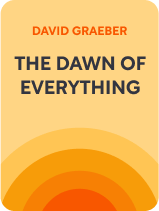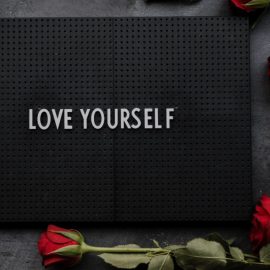

This article is an excerpt from the Shortform book guide to "The Dawn of Everything" by David Graeber. Shortform has the world's best summaries and analyses of books you should be reading.
Like this article? Sign up for a free trial here.
Is inequality inevitable? How did we come to view inequality this way and get stuck in unequal state-level societies?
David Graeber and David Wengrow raise these questions in The Dawn of Everything. They suggest that understanding the complexity and diversity of different kinds of societies throughout history might prompt us to broaden our ideas about the possibilities for our contemporary societies.
Keep reading for an invitation to consider these important questions, including an exercise to help you think through alternatives.
Is Inequality Inevitable?
Is inequality inevitable? A thorough examination of the literature shows us that people throughout history have deliberately changed social and political customs that weren’t working, and they were able to creatively envision different alternatives. Could we use these examples as templates to imagine alternatives for ourselves?
Graeber and Wengrow say that most citizens of modern states have a hard time even imagining a different social order than the one they live in. Indigenous people, however, are not only able to imagine it, they sometimes move back and forth between different social orders in cycles with the seasons. And some have abandoned their social organization entirely and reorganized because what they had wasn’t working well.
For example, Graeber and Wengrow describe the Nambikwara people of Brazil, who live in two different places at different times of the year—one location in the rainy season and another for the rest of the year. They farm during part of the year, they hunt and gather during another part of the year, and they have different political systems, social organizations, and rules for those different phases of the year. (Shortform note: Many people consider nomadic cultures to be a thing of the past, but millions of nomads still exist today and they are present on nearly every continent.)
If people throughout history have been assembling and dismantling hierarchies on a seasonal basis or even in a historical pattern, then the authors challenge us to consider: Why have we been stuck in the state structure for so long? Why did most of humanity allow these permanent hierarchical systems to take root? How did we as a species come to give in and accept these systems?
Graeber and Wengrow leave us with more questions than answers. But, in conclusion, they point out that earlier people took conscious steps to avoid domination and hierarchy and to protect personal freedoms, liberties, and equality. And they say this indicates that we could also dismantle the systems we have in place and build something different. We’re limited only by our imaginations.
| Can We Have Peace Without State Control? In the spirit of imagining alternative ways of living, you might wonder: Is it possible to have a peaceful society and true egalitarian freedoms? Taking Hobbes’s pessimistic perspective of human nature, Steven Pinker would say that in large-scale societies, a formal government is necessary to keep our violent instincts in check. In his book The Better Angels of Our Nature, Pinker argues that today’s modern societies are less violent than small-scale societies of the past, specifically because we have greater social control mechanisms, which have led to what he calls the “pacification process.” He argues that the reason we need a government, police, and a criminal justice system in complex societies is because it would all descend into chaos if we didn’t have that. Graeber and Wengrow disagree with this notion. They say the evidence doesn’t support the claim that a formal government is necessary for a peaceful society. It can also be argued that the modern state’s monopoly of force can be used for much larger-scale acts of terror and oppression, and that it curtails the kinds of freedoms and liberties associated with an egalitarian society. |
| Which Modern Countries Are the Most Egalitarian? Although none embody the freedoms of the indigenous egalitarian societies, some contemporary nations are much more egalitarian than others. Could we look at those countries as models to start thinking about global steps in that direction? Ranking countries in terms of equality is complicated because there are many different dimensions of inequality, including economic, gender, and racial inequalities. However, when we look at the data, we see some common names appearing on the “top five” lists. • Top five countries with the greatest income equality: Norway, Denmark, Finland, Sweden, and Switzerland • Top five countries with the greatest gender equality: the Netherlands, Sweden, Norway, Denmark, and Finland • Top five countries with the greatest racial equality: the Netherlands, Sweden, Norway, Canada, and Finland It’s clear from these lists that there are a handful of countries full of people who may not believe they’re stuck in a system of inequality, and who are actively using their imaginations to re-think their social systems to move toward a more egalitarian world. |
Exercise: Imagine an Alternate World
Graeber and Wengrow say one reason we’re stuck in systems of inequality today is that we lack the ability to imagine alternatives. Use your imagination to design a better society.
- Imagine your ideal society. What would a perfect world be like, for you? Think about cultural values, norms, beliefs, structures, political and economic systems, and so on. List three that are especially important to you.
- Now, when you have that vision of an ideal world, compare it to the reality of the society you live in. What are the most notable differences?
- Considering the differences you noted, in order to transform your current society into your ideal one, what would need to change? Set aside the notion of whether these changes are realistic or not and simply engage the imagination.

———End of Preview———
Like what you just read? Read the rest of the world's best book summary and analysis of David Graeber's "The Dawn of Everything" at Shortform.
Here's what you'll find in our full The Dawn of Everything summary:
- How our beliefs about the evolution of human societies have been wrong all along
- An exploration of different notions of freedom and equality
- Thought-provoking questions about the inevitability of inequality






